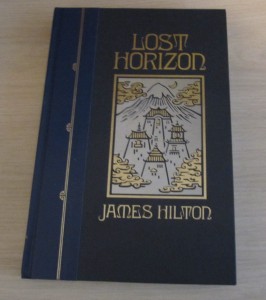 I was happy to find this old book at the Value Village in Burquitlam. I have this book on Kindle, but can’t pass up such a classic hard copy in good shape. Though not really an unpopular book in need of rescue, it is quite old and probably not as widely read today as it was when it was published in 1933.
I was happy to find this old book at the Value Village in Burquitlam. I have this book on Kindle, but can’t pass up such a classic hard copy in good shape. Though not really an unpopular book in need of rescue, it is quite old and probably not as widely read today as it was when it was published in 1933.
I took a special interest in the book when watching the television show “Lost,” which had numerous mythological and literary (and other) references in it, including to Lost Horizon. One such motif was the idea of a lost paradise that held some sort of magical quality about it that everyone was just dying to get to, if they only knew the place existed in the first place. And then, how to find it?
In Lost Horizon, it is suggested that utopia (Shangri-la)–peace, happiness, and longevity–inhabits a Tibetan lamasery high in the mountainous wilderness, but the book’s idealism became overwhelmed in the rhetoric of war happening in real life. The idea that precious things, such as beauty, or even texts and histories, would be lost in such cataclysm, was also central to the television series “Lost.”